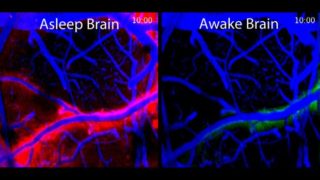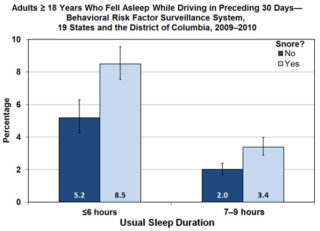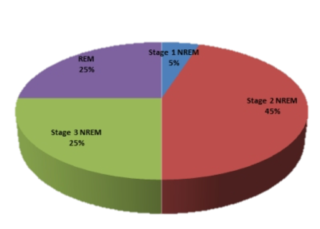Too Tired, Too Often?

When was the last time you got 8 hours of sleep? Needed an extra cup of coffee this morning? Learn about the importance of sleep to our mental health and ways to improve your quality of sleep.
Living in the fast-paced 21st century, where busy schedules and endless to-do lists are typical, we tend to deprioritize sleep. We do not realize that we are making one of the biggest mistakes that potentially result in long-term health problems. Without sleep, our bodies cannot function in proper manners and contributes to mental health disorders and memory & learning impairment.
Sleep allows you to physically be unconscious while your brain is mentally active. During sleep, our brains are working to process and restore the information that we retrieve from the time we were awake[1]. After a good night sleep, we are able to retain information and dramatically perform better on the next day. Sleep is taken for granted because many of us overestimate our abilities to fulfill daily duties. We are not aware that sleep is fundamental for a healthy mind, body, and soul. Neurotransmitters are chemical messengers which communicate between neurons throughout your brain and body. By acting on different groups of neurons in the brain, neurotransmitters regulate whether we are asleep or awake. They can “switch off” cells that signal the activation of arousal or relaxation.
Sleep is not just one “snoozed off” action, but it occurs in stages and it is quite complicated. During sleep, the brain and body go through five stages; the non-rapid eye movement (non-REM) phrase includes the first four stages and the rapid eye movement (REM) phrase is the fifth stage.
As we shut our eyes to sleep, we enter stage 1 of the sleep cycle. When there are very minimal to no eyes movements, we’ve made it to stage 2.
We then continue to stages 3 and 4 or as known as the deep non-REM.
We enter REM sleep when breathing and heart rate become irregular, muscles are shut down becoming paralyzed, and eyes movements are rapid.
Approximately, we experience three to four sleep cycles. The sleep cycle repeats itself every 60- 90 minute [6] in that appropriate 8 hours that we are supposed to get. During the first 2-3 cycles, we spend more time in the deep non-REM sleep, stages 3-4. REM sleep occurs more frequently in the last 2-3 cycles[4].
Sleep is not a luxury, but a crucial component of our daily lives. We spend one third of our lives asleep. Yet, many of us cannot get 8 hours of quality sleep for various reasons, putting ourselves in sleep debt. When in sleep debt, parts of your brain become inactive which induces drowsiness. One to four percent of all highway accidents are caused by sleepiness; that’s about 100,000 crashes, 71,000 injuries and 1,550 deaths each year in the USA [1]. Lack of sleep causes the body to respond as if you were under stress. When under stress, Dr. Malcolm von Schantz explains that the body automatically activate inflammatory genes preparing for injury to occur [8]. In the case of sleep-deprivation, there is no actual injury. Genes in the body’s cells function improperly when one is sleep-deprived which produce negative health problems including: According to Dr. Kushida, director of the Standford University Center for Human Sleep Research, loss of sleep ultimately leads to memory and learning impairment due to the disturbances in brain function when adequate sleep is not met [9]. Furthermore, sleep-deprived physically makes you look bad by giving you the premature wrinkling and dark circles under your eyes. Without sleep, stress hormone cortisol is produced, and it can eventually break down collagen and causes skin problems [8]. They called it “beauty sleep” for a reason.
If you have tried everything and still having difficulties falling asleep, you should seek professional help. Your problems may be the surface to more serious problems like insomnia, narcolepsy, obstructive sleep apnea, depression and etc.
[1] Why Sleep is Important. (n.d.). Retrieved from https://www.apa.org/topics/sleep/why.aspx [2] Brain Basics: Understanding Sleep. (2017, May 22). Retrieved from https://www.ninds.nih.gov/Disorders/Patient-Caregiver-Education/Understanding-Sleep [3] Thompson, Jill. (2017, Sep 26). Hypnic (Hypnagogic) jerking explained. The Sleep Advisor. Retrieved from https://www.sleepadvisor.org/hypnic-jerking/ [4] Understanding sleep cycles. National Sleep Foundation. (n.d.). Retrieved from https://sleep.org/articles/what-happens-during-sleep/ [5] Gordon, A. M., Ph.D. (2013, Jul 26). Your sleep cycle revealed. Psychology Today. Retrieved from https://www.psychologytoday.com/us/blog/between-you-and-me/201307/your-sleep-cycle-revealed
[6] Field, A. (n.d.). Why is sleep so important. Harvard Business Review. Retrieved from https://hbr.org/2009/01/why-sleep-is-so-important.html [7] How much sleep do we really need? National Sleep Foundation. (n.d.) Retrieved from https://sleepfoundation.org/how-sleep-works/how-much-sleep-do-we-really-need/page/0/1 [8] Ghosh, P. (2015, May 15). Why do we sleep? BBC News Science and Environment. Retrieved from http://www.bbc.com/news/science-environment-32606341 [9] Kushida, C. A., Ph.D. (n.d.). College students: getting enough sleep is vital to academic success. American Academy of Sleep Medicine. Retrieved from https://aasm.org/college-students-getting-enough-sleep-is-vital-to-academic-success/ [10] DiGiulio, S. (2018, Mar 15). How to use a sleep diary to figure out what’s keeping you up at night. NBC News. Retrieved from https://www.nbcnews.com/better/health/how-keep-sleep-diary-actually-improve-your-sleep-ncna805281
[11] How Exercise Affects Sleep. National Sleep Foundation. (n.d.). Retrieved from https://sleep.org/articles/exercise-affects-sleep/ [12] Caffeine and Sleep. National Sleep Foundation. (n.d.). Retrieved from https://sleepfoundation.org/sleep-topics/caffeine-and-sleep [13] Mayo Clinic. (2013, June 3). Are smartphones disrupting your sleep? ScienceDaily. Retrieved from www.sciencedaily.com/releases/2013/06/130603163610.htm [14] Gregoire, C. (2015, May 25). 7 big things we’ve learned about sleep in the past decade. Huffington Post. Retrieved from https://www.huffingtonpost.com/2015/05/25/sleep-research-health_n_7215662.html [15] Corliss, J. (2015, Feb 18). Mindfulness meditation helps fight insomnia, improves sleep. Harvard Health Publishing Harvard Medical School. Retriever from https://www.health.harvard.edu/blog/mindfulness-meditation-helps-fight-insomnia-improves-sleep-201502187726
So, what is “sleep?”

[Photo courtesy University of Rochester Medical Center]You may be wondering…what happens to our brain and body during sleep?
The Sleep Cycle
[Photo courtesy Luke Mastin]
Now, what happens when you’re in sleep debt?


[Photo courtesy Wheaton AG, Chapman DP, Presley-Cantrell LR, Croft JB, Roehler DR.]
Tips & Tricks for Better Sleep



